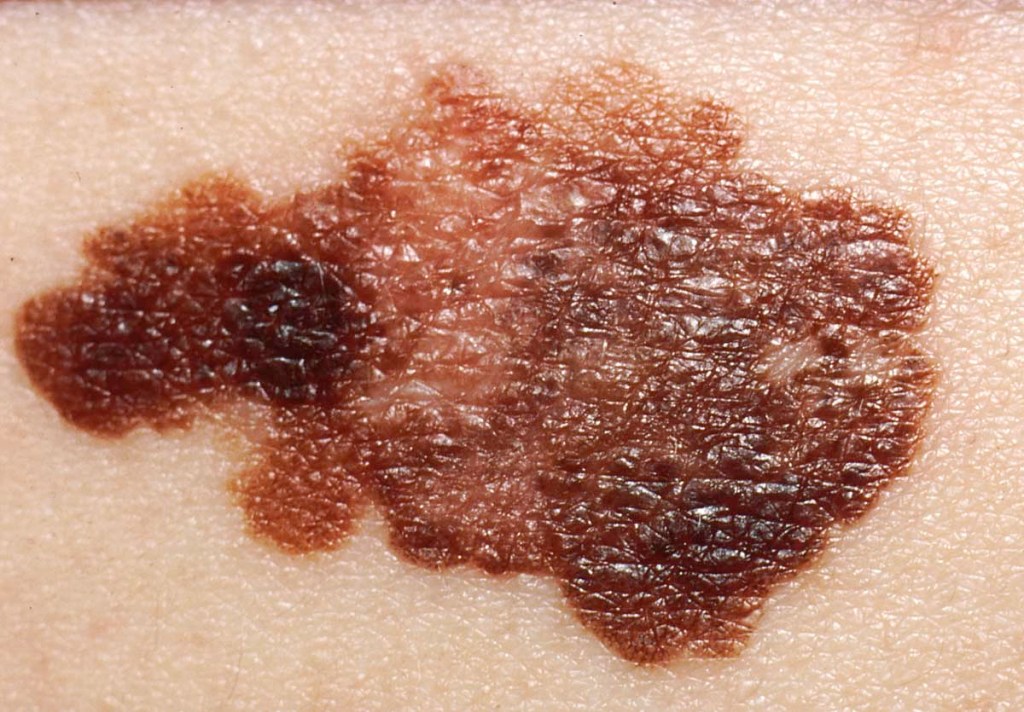Advance in treatment of late-stage melanoma confirmed in large-scale study
Published 8:40 am Monday, June 1, 2015

- Melanoma
CHICAGO – Treating advanced melanoma patients with two of the new drugs that help their immune systems fight cancer is more effective than using either drug alone, researchers showed in a study released Sunday that expands physicians’ arsenal against the lethal disease and, potentially, other cancers.
The results of the large-scale, randomized study – the gold standard of such research – confirms the effectiveness of the new “checkpoint inhibitors” that in the past few years have become the most promising way to prolong the lives of cancer patients who previously had few and difficult treatment options. Just weeks ago, the same team published similar results in a smaller trial that examined fewer aspects of the same treatment.
Instead of attacking tumors with chemicals or radiation, the new drugs work by taking the brakes off patients’ immune cells, helping those cells to find and fight cancers.
In this case, researchers tested the use of two of the three government-approved drugs – nivolumab and ipilimumab – together in melanoma patients who had received no prior treatment. Each drug targets a different path to unleashing the body’s immune cells.
In a test of 945 patients, the researchers found that the two medications, working together, allowed patients to survive for a median of 11.5 months without their cancer progressing. Nivolumab alone gave patients 6.9 months, and ipilimumab provided 2.9 months. More than 70 percent of the patients given both drugs had some kind of positive response to the combination therapy.
“The story of this trial is really the potency of the combination,” said Jedd D. Wolchok, associate director of the Ludwig Center for Cancer Immunotherapy at Memorial Sloan Kettering Cancer Center in New York. “We now can have a very thoughtful discussion with patients and their families of the risk-benefit profile” of their various immunotherapeutic options, he said.
Wolchok presented his team’s findings at the annual meeting of the American Society of Clinical Oncology here. More than 35,000 people in the field are gathered for the conference.
Dozens of studies underway are testing use of the drugs in other cancers, including breast cancer, colorectal cancer, kidney cancer, head and neck tumors.
This research turned up one significant problem for patients and their doctors: The two-drug therapy clearly caused more side effects, some of them severe, than the use of either drug alone. A full 95.5 percent of patients suffered some kind of side effect, including rashes, fatigue, colitis and hypothyroidism.
All can be managed by physicians, Wolchok said. He noted that the treatment caused no deaths from such “adverse events” in a population that was quite sick to begin with. The patients in the study were treated at 137 sites around the world, showing that doctors everywhere can manage the side effects, Wolchok said. And many of the people who had to withdraw from the study because of the severity of their reactions to the medications continued to show positive responses to the drug, he said.
Michael B. Atkins, deputy director of Georgetown Lombardi Comprehensive Cancer Center, said it “clearly shows from all the efficacy parameters [that the combination therapy] is better than nivolumab alone, but also more toxic.” Atkins, who did not take part in the study, agreed that physicians should be able to manage the side effects in these patients.
The study also showed that the combination drug treatment is more effective in patients whose tumors express less of a certain kind of protein, known as PD-L1. For patients whose tumors release more of the protein, the therapy was as successful as nivolumab alone in prolonging life without progression of the disease.
That knowledge could be used by physicians to determine the best kind of therapy in the future, Wolchok said.
“We are beginning to define which patients may benefit from one drug and which patients may benefit from both drugs,” Jyoti Patel, of the Robert H. Lurie Comprehensive Cancer Center at Northwestern University and an ASCO spokeswoman, said at a morning news conference on the research.





